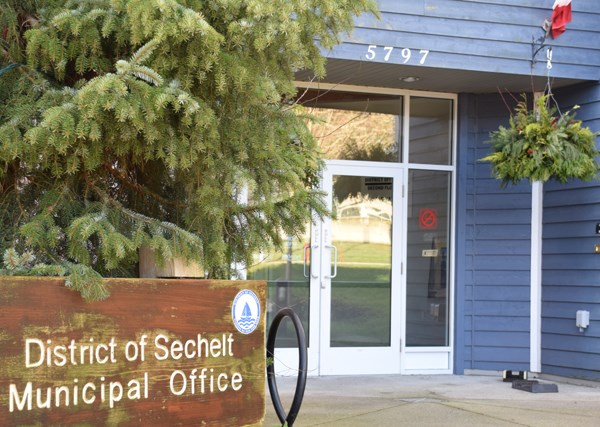Sechelt council has voted to recommend the Agricultural Land Commission (ALC) consider a non-farm use application for an ALR property being used as an RV campsite.
According to a report from the planning department presented at the Oct. 7 council meeting, the Double R Ranch at 6540 Reeves Rd. in West Sechelt has been operating a campground since at least 2008, when the district issued a business licence allowing three RV sites.
The business licence was amended in 2011 to add seven more sites.
The report says the business licence fees were not paid from 2017 to 2018 and the district cancelled the business licence.
“It was subsequently determined that ownership of the property had changed, and bylaw enforcement was made aware that the Double R Ranch was operating in contravention of Agricultural Land Commission land use regulations,” the report said. “It was determined that the owners need to seek approval from the ALC for a non-farm use to conform to provincial regulations.”
Although it’s not an approved use for ALR property, the campsite is allowed under the district’s zoning for the area.
The change of ownership happened in late 2016, and the current owners contacted Coast Reporter to challenge the district’s version of events, saying in an email that they were the ones who first raised the issue of ALC compliance during 2017 discussions with district staff about renewing the business licence.
“Ultimately, we were the ones who questioned the planners as to why [Sechelt] had issued the campground/RV park a business license for eight years, when clearly the campground had long-term occupants and had always been in contravention not only with the ALC rules, but also with the district’s own RR2 zoning,” the email said.
The non-farm use application filed by the new owners also said they were led to believe during the sale negotiations that the campground had “all the necessary regulatory approvals.”
That point is now at the heart of a lawsuit between the current and previous owners, which was scheduled to be heard by a judge in Vancouver Supreme Court this week, but has been adjourned.
The planning department recommended council authorize submission of an application for non-farm use, but ask the ALC to add two conditions if the application is approved: that the campground be restricted to its current area and that it be limited to the existing 10 sites.
Coun. Matt McLean said he was concerned about the use of the site for long-term accommodation, which planner Sven Koberwitz noted in the report was happening.
Koberwitz also said, however, that “staff are not endorsing continued residential use of RV sites at Double R Ranch due to life-safety risks associated with long-term residential use of recreational vehicles.”
He also said that while the relevant zoning bylaw says a campground is “intended to be occupied and maintained for the temporary accommodation of travellers,” the district doesn’t have a strict definition of when a campground use goes from short- term to long-term.
Mayor Darnelda Siegers wanted to know about enforcement of the business licence requirements.
“We’re in a position now where we wouldn’t be able to issue a business license until the non-farm use application is considered and approved,” Koberwitz said. “Currently, it would not conform as a campground use under our zoning bylaws. So if the ALC comes back and denies this application, our bylaw enforcement officers would deal with the property in order to seek compliance.”
Koberwitz said that could include ordering the campground removed from the property if the ALC denies the application for non-farm use. If the application is approved, the district would move to make sure “it’s actually being used as a campground for the travelling public, rather than full-time residential occupancy.”
Koberwitz’s written report added that “any enforcement action would firstly seek voluntary compliance while recognizing the role of unsanctioned affordable housing options.”
In their email to Coast Reporter, the campground’s current owners said the district is “conveniently ignoring that it was their negligence that is now putting the tenants, who are low income people, mostly seniors, out on the street… Perhaps they should be more concerned about the fact that the long-term tenants will be facing homelessness.”



